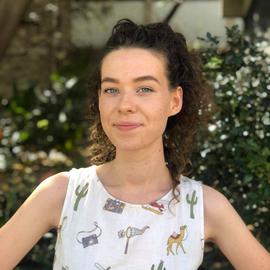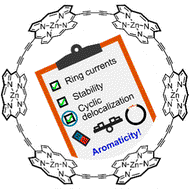Abstract
When oxidized, cycloparaphenylenes and porphyrin nanorings can exhibit macrocyclic ring currents which have been used to assign these molecules as (anti)aromatic. These assignments have been controversial because the presence of ring currents does not always imply cyclic electronic delocalization, which is essential to the definition of aromaticity. Here, we show that the emergence of macrocyclic ring currents in these molecules is correlated with increased electronic delocalization, supporting assignments of these molecules as (anti)aromatic.
Publication
Chemical Communications

PhD Student (2020-2023)
David received his undergraduate BSc degree from Northumbria University in 2016, before working in industry as an analytical chemist until 2018. He then started a 1-year research project in October 2018 at Durham University under the supervision of Dr James Walton, investigating aromatic transformations catalysed by η6-coordination to ruthenium. David joined the Peeks group in February 2020 and his research will focus on antiaromatic materials and their applications.

PhD Student (2021-); Honours Student (2020-2021); Undergraduate researcher (2019)
Bethany completed a Bachelor of Science (International) at UNSW, supplementing her Chemistry major with a minor in Spanish and Latin American Studies. She has returned to the Peeks Group for her Honours Project in 2020, having previously researched as an undergraduate volunteer in 2019. Bethany is currently interested in the synthesis and properties of cross-conjugated molecules.

Scientia Senior Lecturer
I am interested in understanding the fundamental chemistry of complex molecules and molecular systems.
